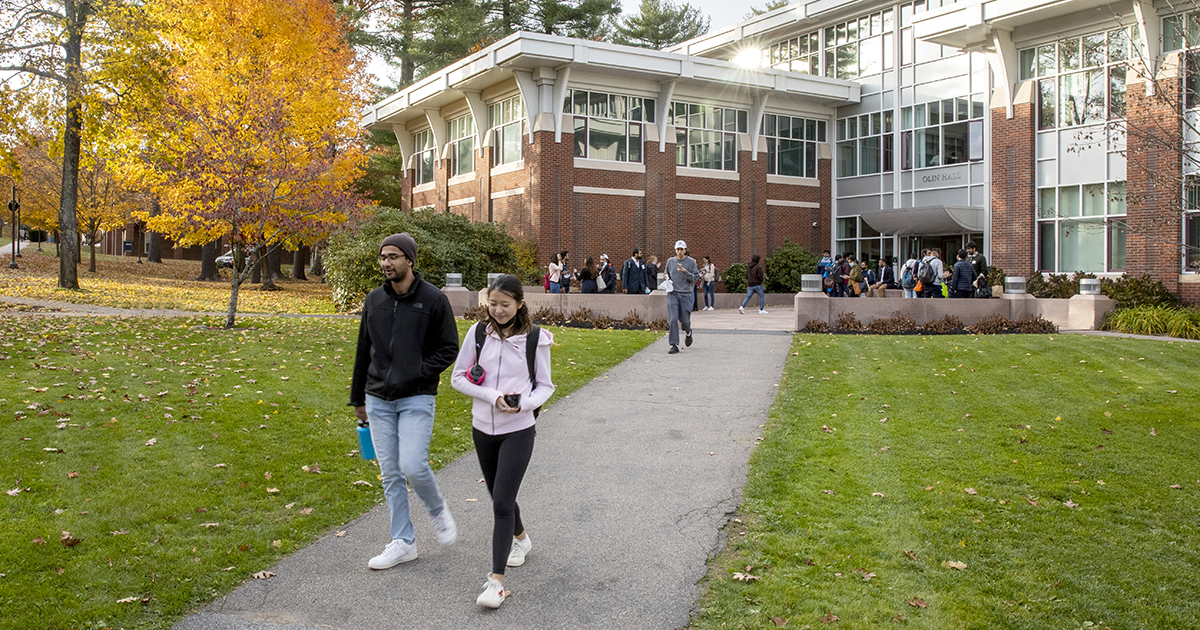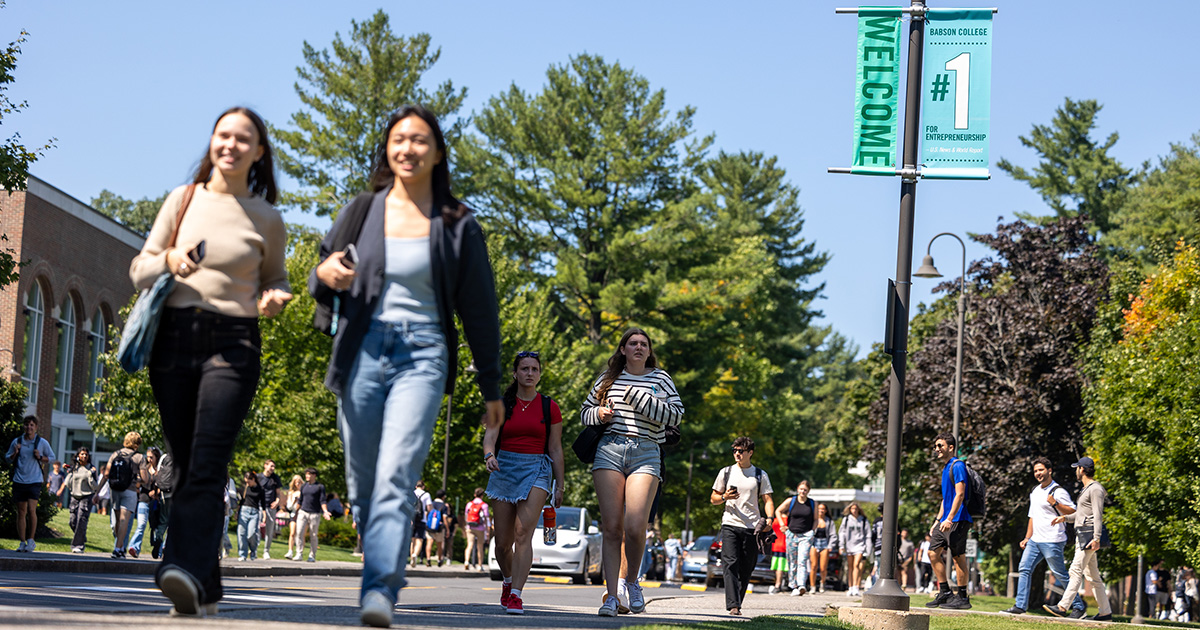What Bond Rating Upgrades Mean to Babson College

In any market, in any industry, especially in uncertain times, there are outliers who buck trends and outperform expectations and the competition.
In the higher education industry—which has been navigating the COVID-19 pandemic amid inefficient business models, changing demographics, and other deepening challenges—Babson College is one of those overperforming outliers.
One of the myriad ways of identifying high performers—companies and institutions—is through an organization’s bond ratings. Babson recently received a pair of bond rating upgrades from Moody’s Investors Service and Standard & Poor’s Ratings Services. The respective A1 and A+ ratings reflect the highest bond ratings in the College’s history.
“These upgrades reinforce our strategy, recognize the hard work of our faculty and staff,” said President Stephen Spinelli Jr. MBA’92, PhD, “and validate the College’s sophisticated financial management through one of the most intense and challenging periods in the history of higher education.”
Financial Discipline
Babson Professor of Finance Richard Bliss likens bond ratings to individual credit scores with a key distinction. While a credit score reflects only an individual’s past actions to determine their likelihood to repay debt, an organization’s bond ratings are more involved. A company or institution provides an in-depth forecast of its financials and business, backed with data, to project its future spending and plans. The ratings agencies evaluate that forecast in determining its rating.

Katherine Craven P’22, chief administrative and financial officer
The forward-looking nature is key, says Katherine Craven P’22, chief administrative and financial officer at Babson. “A rating upgrade is really a recognition of discipline and expectation of continued spending discipline,” she said. “You get upgraded because you’ve maintained discipline, you’ve shown the ability to sacrifice when sacrifice was needed, and the ability to make tough decisions.”
Tangibly, the higher bond ratings equate to lower interest rates and ultimately lower financing costs for borrowing money.
For Babson, there was another immediate financial benefit. The rating upgrades and the lower interest rates allowed the College to refund outstanding bond debt (similar to refinancing a mortgage). Craven says that refunding has saved Babson about $400,000 a year.
Because the ratings reflect the College’s strong financial discipline, both Craven and Bliss caution that the upgrade is a positive signal to continue on its path rather than an opportunity to change course and increase spending.
Academic Impact
Beyond the interest rates and financial advantages, though, there also is a bigger beneficial halo effect to bond ratings upgrades, especially for a higher education institution.
“The reputational risk or positive impact of your rating extends far beyond an isolated transaction or even how Wall Street regards us,” Craven said. “All of our accreditors look at this, so it becomes tangible for the academic side as well. It’s a validation of the academic model.”
“All of our accreditors look at this, so it becomes tangible for the academic side as well. It’s a validation of the academic model.”
Katherine Craven P’22, chief administrative and financial officer
That’s where Babson truly differentiates itself in a market unsettled during the pandemic. The industry, as a whole, is rated as “negative watch,” Craven said, making Babson’s upgrade that much more dramatic and impressive.
“At Babson, we have robust demand for a very high-quality undergraduate program, and our graduate school is increasing its enrollments,” she said. “Parents are smart, and they’re sending their children to Babson and paying tuition, because they’re getting something for their child in return.”
‘Moment of Pride’
The recent upgrade reflects the College’s financial management stretching back before the pandemic. However, Babson’s navigation through the disruption and uncertainty of the pandemic also was a key factor in its recent upgrade, said Bliss, who serves as the Faculty Senate liaison to the Finance Committee of the Board of Trustees.

Richard Bliss, finance professor
“What the pandemic has done for a lot of higher education institutions is exposed a business model that is not sustainable,” Bliss said. “I think what it did for us was show our conservative leadership and fiscal responsibility, but also a business model that is tremendously resilient, and in some ways has come out the downslope of the pandemic as strong as when we went in, which is very rare in this sector right now.”
Craven last secured a double ratings upgrade in 2017. Given the state of the higher education industry and the daunting challenges of the pandemic, the College’s recent positive news strikes a special chord.
“I feel tremendous gratitude that Babson is a place that stuck together,” Craven said. “This is not about the finances alone. It’s how all of the elements of what we do as a community hold together under a microscope from an objective third party.”
Spinelli agreed: “This is a moment of pride for the Babson community.”
Posted in Community




